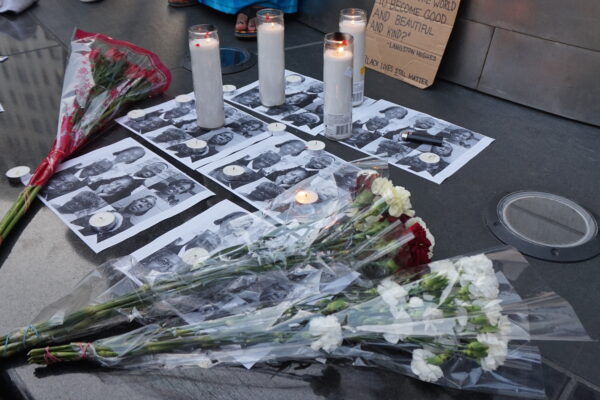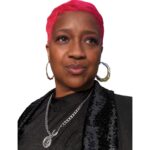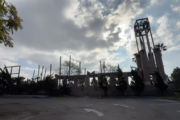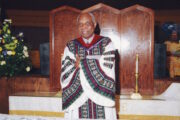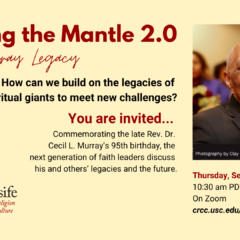Rev. Najuma Smith-Pollard originally published a version of this post on her blog.
During any given week, on Tuesday, Wednesday or Thursday nights, thousands of Christian communities—from small congregations to megachurches—open their doors to anyone who wants to come for Bible study, as well as for choir rehearsals, prayer meetings and other forms of ministry.
Because our congregation believes that “all are welcome,” we leave our doors unlocked and open, often without security. If people come in off the street, we have the opportunity to minister to them. Stray, homeless or just passers-by, it doesn’t matter.
Our faith informs this willingness to be vulnerable, and our vulnerability allows us to serve. We leave ourselves exposed because we believe that God is our shield and protector. With our doors unlocked and open, we pray with our eyes closed and heads bowed, to honor the Lord but also because God has given us a spirit of power, love and sound mind, rather than a feeling of fear.
But with the shooting at Emanuel AME Church in Charleston, South Carolina, I am concerned that there will be a shift toward suspicion, and away from love, and that people of faith will start locking their doors, shunning unfamiliar visitors and praying with one eye open.
When sacred spaces become the sites of terror, it is shocking and deeply unsettling in ways that are difficult to put into words. The place of worship is supposed to be a space where individuals and families can come and lay down their burdens, but now it has become a place burdened with fear.
Sadly, this is not the first time horror has come to a house of worship in our community, and it is even more frightening to realize it will most likely not be the last. While I stand with the need for gun control, the deeper issue exposed by the massacre in Charleston isn’t guns. Our nation has a heart-sickening history of making sacred spaces into terror zones not just with guns, but also with arson, bombs, burning crosses and machetes. The real issue is the hatred that runs through the DNA of the USA.
Just last month, in Phoenix, armed citizens were allowed to picket outside a mosque, in protest of Islam. They wore their weapons, disgustingly proud, and claimed to stand up for their America. You can’t allow the purveyors of hatred to brandish their weapons, then be shocked when someone, on one side or another, actually takes a shot!
And so this alleged shooter (we are innocent until proven guilty) followed the sick strategy that has guided so many hate groups and hateful individuals that we have seen in the past. Or perhaps by participating in the Bible fellowship before striking, he has added a grim new page to that playbook.
After the shooting, I joined the many voices participating in prayer vigils to ask God to comfort the grieving families and heal devastated communities. But I also pray that the events in Charleston will prompt our nation to shift away from such hatred, racism and terror. I pray that we abandon the myth that we live in a post-racial society and come to terms with the fact that the scourges of racism and other destructive “-isms” are rampant, so that we can confront and correct these attitudes.
I pray that parents stop purchasing weapons for their children and that they find new ways to express parental love and support. I pray that we don’t dismiss what has happened in Charleston as an “isolated incident,” but that we go much deeper to examine the national patterns of hatred in our beloved nation.
And still I pray with my head bowed and eyes closed, because the enemy cannot, must not, win.
Photo Credit: The All-Nite Images/Flickr
Rev. Najuma Smith is Assistant Director of Community and Public Engagement with the USC Center for Religion and Civic Culture.
